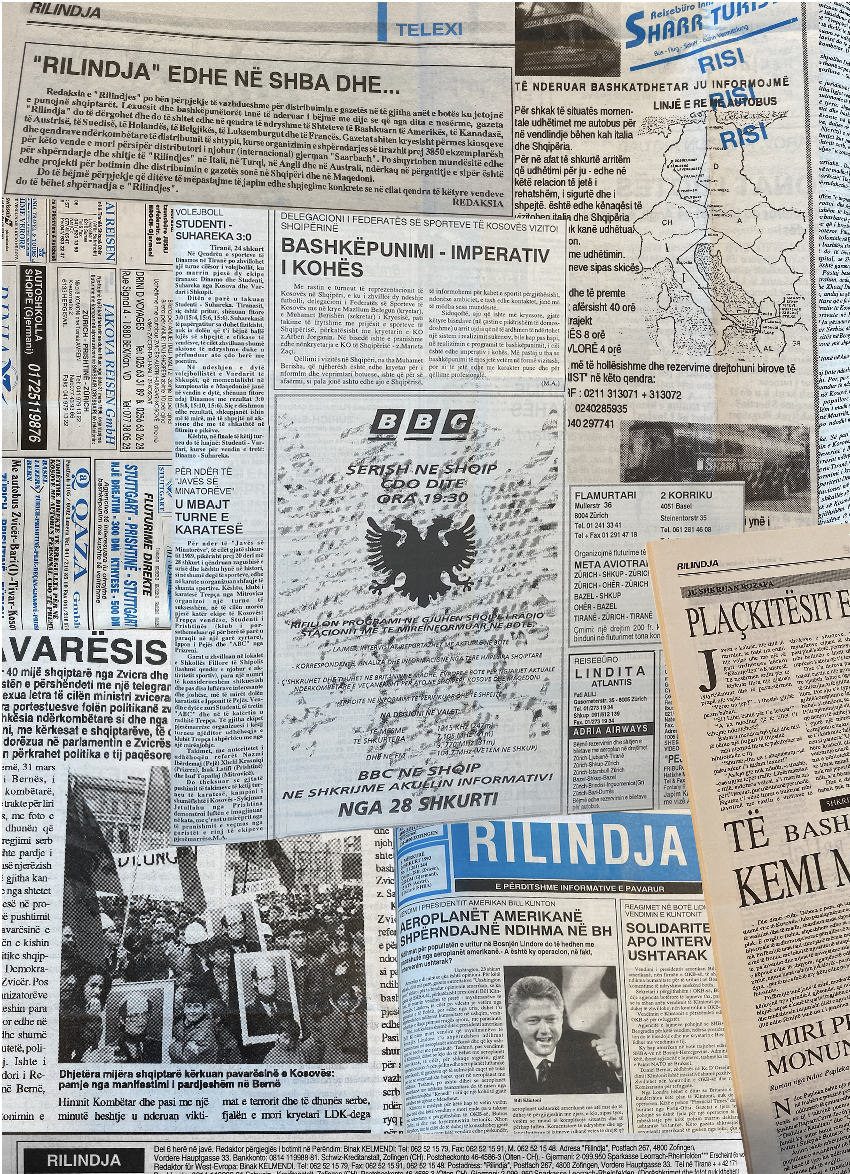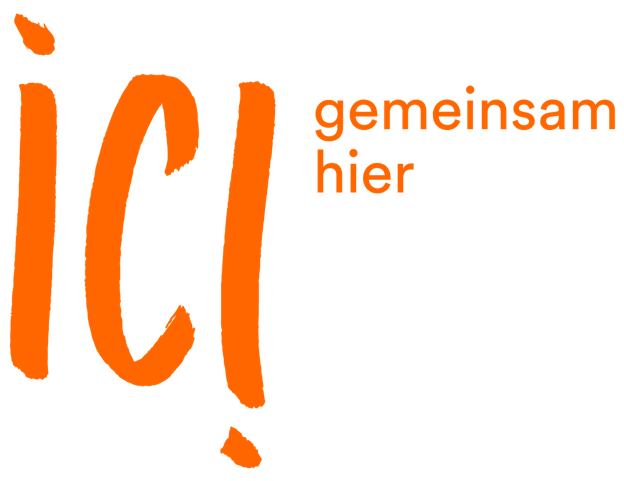The initiation of Potpuri came in dedication to the revival
of printed media in Kosovo, always in reflection to its rich
history. Throughout decades Kosovo has been witnessing
the birth and the death of various publishing initiatives, be
those major newspapers, magazines, printing houses, independent publishing platforms, etc. Nevertheless, in the last
decade, Kosovo does not have any printed newspaper, magazine or other similar platform on regular bases.
Of course, there are independent platforms which have
kept publishing as an existing practice in the context of
Kosovo, but unfortunately today almost all informative
press in Kosovo operates either through online portals
or through TV channels. Our research in this aspect is
still new, therefore we do not know the exact reason
of this situation, nevertheless we have been gathering
reflections and opinions in this aspect and some of the
main reasons of such absence of printed press in Koso-
vo seems to be the domination of online consumerism,
the privatization of media and the absence of a dedicat-
ed public willing to pay for printed press.
In spite of this situation, our work through Potpuri is in quest to learn from that past and from those
people who are continuously giving effort on at least
documenting and archiving the rich heritage of printed
press in Kosovo.
In the summer of 2022 we invited Ervina Halili—an in-
dependent writer and committed advocate on the loss
of collective heritage of the RILINDJA newspaper—to
share with us her work and insight on the printed his-
tory of the RILINDJA newspaper in Kosovo.
RILINDJA, widely known in Kosovo, was one of the
biggest newspapers in Kosovo reaching a capacity of
234,000 copies during holiday seasons due to its de-
mand. RILINDJA newspaper was founded in February
1945 in Prizren as the first printed Albanian newspaper
in Kosovo. Experiencing quite a steady growth, RILIND-
JA has managed for decades to reestablish itself even in
the most conflictual times of the history of Kosovo. It
started as a weekly newspaper with four pages per issue, to further continue its publishing in Prishtina at
the “Provincial of the Popular Front” Publishing House
as a daily newspaper with regularity and minor changes.
Its major collapse happened on August 8, 1990 as it was
permanently banned by the Serbian regime in Kosovo.
RILINDJA came back again to the Kosovo market only
in 1999 with the end of Kosovo’s war, but what about it
between the years 1990 to 1999, where was RILINDJA?
During that insightful conversation with Ervina, most
of us hear for the first time that there is a deeper con-
nection between Kosovo and Switzerland regarding the
printed history of newspapers. Ervina shares with us
that during the years 1992–1996 RILINDJA was printed in Switzerland. More precisely, during these years
it was mainly printed in Switzerland, at the Zofingen
printing house. In quest and curiosity in exploring fur-
ther this period, Ervina suggests that we talk to Binak
Kelmendi, at the time one of the editors of RILINDJA in
«the west», as they called it.
As we talk, Mr. Kelmendi suggests that we go to visit the
Canton’s Library of Aarau to get a close look of those
printed editions as they are all archived and accessible
at the Library. Off we went to Aarau to see closely, to
touch and to dive into RILINDJA during the years of
1992–1996.
We take the large collection of RILINDJA
into one room and dive into them. As we open one of
the codexes, here is RILINDJA—E perditshme inform-
ative e pavarur (The Independent daily news), the first
issue on the archive is “E Merkure, 28 shkurt 1993”
(Wednesday, 28 of February 1993). With its simple blue and white-light-colors
RILINDJA comes out with an odor of paper and fresh-
ness as if it was never before touched nor read by an-
yone. You could clearly see the folding shape of the
newspaper as it came directly from the printing press
to the library. The quality of the newspapers was high,
the smell of the paper is still there saved for a dose of
nostalgia to hit hard.
In each issue of RILINDJA the first page has a short
overview, not always written the exact same but gener-
ally referring to the history of the printed medium of
RILINDJA:
• The first issue of the newspaper RILINDJA was
published on February 12, 1945.
• Since August 8, 1990, RILINDJA has not been
released in Kosovo, because by an arbitrary decision by
the Assembly of the Republic of Serbia and with police
violence it was banned on August 7, the day when the
issue 11,261 was released.
• “RILINDJA” newspaper—the foreign publica-
tion for our diaspora in the world—began to be pub-
lished on May 7, 1992.
• In Tirana, the newspaper RILINDJA began to
be published on April 18, 1993.
Printed between 12–20 pages per daily edition “RILIND-
JA” newspaper during 1992–1996 was printed daily six
times a week, except Sundays. In these times RILIND-
JA newspaper would reach a capacity of 13,000 copies
daily, distributed mainly among the albanian speaking
diaspora in Europe, in countries such as Switzerland,
Germany, Austria and later also in the USA and Belgium.
As we understood by its content and the talk
we had with Mr. Kelmendi, RILINDJA in the west was
a tool and medium of first hand information for the Al-
banian diaspora in the west, likewise it became a tool of
mobilization for foreign support and acknowledgment
of the situation on the ground for Kosovo. Mainly sold
through continuous support of its regular subscrib-
ers, RILINDJA newspaper was spread around the world
through special requests as well. The content structure of the newspaper would
almost always be the same with a clear structure (eg.
Echoes, Daily Events, Current Affairs, From the For-
eign Press, Chronicle, Culture, Fejtoni, Sport, Telex),
nevertheless there were simple plays and changes happening from issue to issue, such as children’s sections
would be added. Concentrated in text and less in visuals,
RILINDJA kept a simplicity which allowed the reader to
dive into its content easily.
With reading the news being reported, it’s impossible not to see the power and influence of such a
newspaper at that time for Kosovo. Often RILINDJA
was the only independent platform reporting on Kosovo for the world or better to say the «western world»
at that period.
The enormous support of the diaspora
to finance such an initiative allowed that the public
would get informed about what is happening in Kosovo through the eyes of those who were experiencing it.
In addition, it would report about various international
movements which for years and decades continuously
brought attention to the political, social and econom-
ical situation of inhabitants of Kosovo. Thus, RILIND-
JA was playing a role in the advocacy for freedom and
independence for a group of people which had been
oppressed to a point where public appearance wasn’t
possible to be exercised freely, let alone the right to free
speech. Likewise, through its daily activity, RILINDJA
in exile—how I sometimes like to call it—would re-
spond to the direct needs of the diaspora, be those ways
to connect with their family members in Kosovo, ways
to support mobilizations in Kosovo, on how to travel to
Kosovo or on how to connect to their culture through
various events.
Not to forget, the situation in Kosovo was still faced
with resistance on the ground. With the closure of
RILINDJA newspaper in Kosovo on 18th of January
1991 the weekly newspaper “BUJKU” (the Farmer) was
published—informing about the latest ‘agricultural de-
velopments’ in Kosovo. The team behind BUJKU had
multiple journalists which once used to run the inde-
pendent RILINDJA. Always an example of resistance
and dedication, the daily RILINDJA came back to Koso-
vo’s market one day after NATO forces intervened in
Kosovo. The historical newspaper came back with the
‘liberation’. RILINDJA existed in Kosovo regularly un-
til February 21, 2002 since it was evicted from its pub-
lishing house by the UN mission in Kosovo (UNMIK),
marking the beginning of the privatization of public and
socially-run properties in Kosovo. Even though there
have been symbolic appearances of RILINDJA in Koso-
vo throughout these years, still twenty years later we
can witness that such imperialist privatization practic-
es have become the dominant mentality within Kosovar
society. As the actions and work of RILINDJA are bigger
than the physical newspaper, and since RILINDJA for us
is a story of resistance, here too, the team of POTPURI
takes the inspiration and the courage to continue this
resistance in attempt to bring back printing press as for
the diaspora as well as in Kosovo.
This article is dedicated to all RILINDJA members who have given us the love for newspapers. Likewise, this article is dedicated to all the memebers of the RILINDJA team in the diaspora who have shown us another side of history through their resistance.






